Creativity is often seen as a mysterious force, yet it is a journey that every individual can embark upon. For those seeking to unlock their creative potential, reflections have emerged as a powerful tool. By reflecting on one’s experiences, thoughts, and actions, individuals can gain clarity, find new perspectives, and spark innovation. In this article, we delve into the transformative power of reflections for creative minds, exploring how this practice can enhance your creative process, improve focus, and foster personal growth. Whether you’re an artist, writer, or innovator, reflections offer a unique pathway to unlock your full potential and achieve meaningful breakthroughs.
Key Takeaways
- Harness Reflection to Understand Your Creative Process
Gain self-awareness and identify strengths and weaknesses for iterative improvement.
- Identify Blind Spots Through Reflection
Conduct objective analysis to uncover biases and habits impacting your creativity.
- Expand Creative Horizons via Reflection
Explore new perspectives and break through creative blocks for innovation.
- Build a Feedback Loop for Growth
Seek and act on constructive criticism to refine your creative approach.
- Plan Strategically for Future Success
Set goals and prepare for challenges through reflective planning.
- Cultivate Gratitude and Mindfulness
Maintain a positive mindset and reduce stress for sustained creativity.
- Enhance Focus with Mindful Reflection
Calm your mind and improve concentration through mindful practices.
- Visualize Goals for Motivation
Align actions with aspirations to boost motivation and achievement.
- Learn from Past Creations
Review work to identify improvements and build confidence in your process.
- Journal for Clarity and Progress Tracking
Capture thoughts and monitor your creative journey effectively.
- Recharge with Nature Reflections
Refresh perspective and reduce distractions in your creative workflow.
- Adapt and Grow Through Feedback
Develop resilience and openness to criticism for continuous improvement.
- Experiment for Innovation
Explore new techniques to enhance your creative workflow and drive breakthroughs.
- Foster Self-Awareness for Personal Growth
Understand yourself and areas for improvement to evolve creatively.
- Align Actions with Core Values
Achieve clarity of purpose and motivation through purpose-aligned efforts.
- Leverage Patterns for Innovation
Learn from past experiences to spark new ideas and approaches.
- Nurture Creativity with Emotional Balance
Manage emotions positively to sustain creativity and reduce hindrances.
- Utilize Tools for Efficient Reflection
Organize reflections using tools like journals to support creative processes.

How Reflections Benefit Creative Minds
Reflections are a powerful tool for fostering creativity, offering a unique opportunity to pause, introspect, and gain clarity. Here’s how reflections can unlock your creative potential:
- Spark Creativity : Reflections allow your mind to wander freely, often leading to innovative ideas. By stepping away from constant activity, you create space for fresh thoughts and unexpected insights.
- Enhance Problem-Solving Skills : Reflecting on challenges helps you approach problems from new angles. This process often reveals solutions you hadn’t considered before, making it a valuable tool for creative thinkers.
- Inspire Fresh Ideas : Looking inward can reignite your passion and curiosity. It’s during moments of reflection that many artists, writers, and creators find inspiration for their next project.
- Improve Mental Health : Reflections can reduce stress and anxiety, which often hinder creativity. By taking time to reflect, you cultivate a mindset that’s more open and receptive to new ideas.
To dive deeper into the art of reflection and its impact on creativity, explore our creative insights . We discuss practical techniques and share real-life examples of how reflection has transformed the creative process for many.
Techniques to Enhance Creativity Through Reflection
Reflection is a powerful tool for creative minds, allowing them to explore thoughts, ideas, and experiences to spark innovation. Here are some effective techniques to harness the power of reflection:
- Visualization : Imagine yourself in the future, achieving your creative goals. This mental exercise helps clarify your vision and keeps you motivated.
- Mindfulness Practice : Spend a few minutes daily focusing on your breath or surroundings. This clears the mind and fosters creativity by reducing stress and distractions.
- Journaling : Write down your thoughts, ideas, or daily experiences. This process helps organize your thoughts and uncover patterns that may inspire new concepts.
- Nature Walks : Take a walk in your favorite outdoor space. Nature often provides fresh perspectives and inspiration, making it easier to reflect and brainstorm.
- Mind Mapping : Create a visual representation of your ideas. Tools like those from MindTools can help structure your thoughts and reveal connections.
- Setting Intentions : Begin your day by defining your creative goals. This practice helps channel your energy toward productive outcomes.
- Learning from Others : Reflect on successful projects or works by studying creators you admire. This can provide valuable insights and motivate your own efforts.
- Embracing Failure : Analyze past failures to understand what went wrong and how to improve. This reflection often leads to valuable lessons and stronger creative processes.
- Limiting Distractions : Create a dedicated space for reflection where you minimize outside influences. This allows your mind to focus and generate ideas more effectively.
- Seeking Inspiration : Engage with art, literature, or podcasts to expose yourself to diverse perspectives. This broadens your thinking and sparks creative ideas.
- Practicing Gratitude : Regularly reflect on what you’re thankful for. This mindset fosters positivity and can lead to innovative solutions by highlighting strengths and opportunities.
- Collaborating with Others : Discuss your ideas with peers to gain new insights. Collaboration can challenge your assumptions and open doors to unexpected creative directions.
- Reviewing Past Work : Look back at previous projects to identify patterns and improvements. This reflection helps build on past successes and refine future endeavors.
By incorporating these reflection techniques into your routine, you can unlock new creative possibilities and achieve your full potential. Visit Patrick Mettraux for more insights and resources on fostering creativity and inspiration.

Best Reflection Techniques for Creative Minds
Reflection is a powerful tool for creative minds, helping to clarify thoughts, generate ideas, and foster innovation. Here are some effective reflection techniques tailored to enhance creativity and problem-solving abilities:
- Mindfulness Meditation : Practice mindfulness to clear your mind of distractions and allow for clearer thinking. Focus on your breathing and observe your thoughts without judgment. This technique helps in gaining clarity and fostering creativity.
- Journaling : Write down your thoughts, ideas, and reflections regularly. Journaling helps in organizing your thoughts and tracking your progress over time. It’s particularly useful for capturing fleeting ideas that might otherwise be lost.
- Visualization : Close your eyes and visualize yourself in the future, successful and having achieved your goals. This practice helps in setting positive intentions and reinforcing your creative aspirations.
- Learning from Others : Study the lives and works of influential creators. Analyze their habits, challenges, and successes to draw inspiration and apply their approaches to your own projects. Visit Patrick Mettraux for more insights on creative inspiration.
- Take Regular Breaks : Allow your mind to rest and rejuvenate by taking short breaks throughout the day. This prevents mental fatigue and allows for fresh perspectives on complex problems.
- Embrace Failure as Feedback : View failures not as endpoints but as opportunities to learn and grow. Reflect on what went wrong and how you can improve next time. This mindset fosters resilience and adaptability, which are crucial for creativity.
- Set Dedicated Reflection Time : Schedule specific periods each day for reflection. During these times, focus on your achievements, challenges, and areas for growth. This routine helps in maintaining a balanced and productive mindset.
- Use Analogies and Metaphors : Draw connections between your work and natural phenomena or historical events. This approach can spark new ideas and provide fresh perspectives on familiar problems.
- Collaborate and Exchange Ideas : Engage with peers and colleagues to share ideas and gain diverse perspectives. Collaboration can lead to innovative solutions and help in breaking creative blocks.
- Practice Gratitude : Reflect on what you’re grateful for in your life and work. This practice shifts your focus to positivity and can inspire new ways of thinking and approaching challenges.
- Explore Contradictions : Consider opposing viewpoints or assumptions and challenge them. This exercise can lead to breakthroughs by forcing you to think outside conventional boundaries.
- Experiment and Iterate : Don’t hesitate to try new approaches and be willing to iterate. Reflection after each attempt allows you to learn and refine your methods, leading to improved outcomes.
- Seek Feedback : Share your ideas with trusted friends, mentors, or colleagues and ask for their opinions. Constructive feedback can provide valuable insights and help you refine your concepts.
- Stay Curious and Open-Minded : Keep asking questions and remain open to new experiences. A curious mind is more likely to discover innovative solutions and embrace creative possibilities.
- Engage in Physical Activities : Incorporate movement into your routine, such as walking or stretching. These activities can clear your mind and provide a fresh perspective on your creative challenges.

How Can Creative Minds Improve Their Process Through Reflections?
Reflection is a powerful tool for creative minds to enhance their process and unlock new possibilities. By dedicating time to self-reflection, creators can gain deeper insight into their work and identify areas for growth. Here’s how creative minds can leverage reflections to improve their process:
1. Understand Your Creative Process
Reflecting on your past projects can reveal patterns in your thinking and working habits. Ask yourself questions like: – What inspired your previous ideas? – What challenges did you face, and how did you overcome them? – What aspects of your process worked well, and what could be improved?
This self-awareness helps you recognize strengths and weaknesses, allowing you to refine your approach moving forward.
2. Identify Blind Spots
Sometimes, our own biases or habits can hinder our creativity without us realizing it. Reflection forces us to examine our assumptions and habits objectively. For example: – Are you unconsciously limiting your color palette because of past failures? – Do you consistently start projects but struggle to finish them due to perfectionism?
Identifying these blind spots can lead to breakthroughs by addressing underlying issues.
3. Explore New Perspectives
Reflection doesn’t mean stagnation. It’s an opportunity to expand your horizons. Consider: – What fresh ideas or techniques could revitalize your work? – How can you reinterpret old problems in new ways? – What inspiration can be drawn from unrelated fields like science, philosophy, or technology?
Exploring diverse viewpoints can spark creativity and open up unexpected opportunities.
4. Build a Feedback Loop
Seeking feedback from others can provide valuable insights. Reflect on: – How does your work resonate with others? – What suggestions could improve your execution or originality? – How can you refine your communication to better convey your vision?
Constructive criticism can guide you toward refining your ideas and approaches.
5. Plan for the Future
Reflection also involves looking ahead. Consider: – What goals do you want to achieve in the next year? – What skills or knowledge do you need to develop? – What opportunities or challenges might arise, and how can you prepare for them?
Having a clear roadmap helps you stay focused and motivated.
6. Practice Gratitude and Mindfulness
Finally, reflect on what you’re grateful for in your creative journey. This can boost motivation and remind you why you started down this path. It also helps maintain a positive mindset, essential for sustained creativity.
By incorporating reflection into your routine, creative minds can continuously evolve, adapt, and thrive in their pursuit of excellence.
Techniques to Improve Focus Through Reflection for Creative Minds
Reflection is a powerful tool for creative minds to sharpen focus and unlock inspiration. By dedicating time to reflect, you can gain clarity, reduce mental clutter, and foster a more productive creative workflow. Here are some proven techniques to enhance your focus through reflection:
1. Practice Mindfulness During Reflection
Mindfulness is a cornerstone of effective reflection. Begin your practice by sitting quietly in a comfortable space, focusing on your breath, and letting your mind wander freely. This exercise helps clear your mind of distractions and allows creative ideas to surface organically.
2. Visualize Your Creative Goals
Before diving into your work, take a moment to visualize your creative goals. Imagine yourself already achieving these goals, feeling the emotions associated with success. This mental rehearsal can boost motivation and help you stay focused on your objectives.
3. Reflect on Past Creations
Reviewing your past work can provide valuable insights. Look at what worked well and identify areas for improvement. This reflection helps build confidence in your process and ensures you’re consistently producing high-quality output.
4. Journal Your Thoughts
Writing down your thoughts and ideas is a highly effective reflection technique. Dedicate a notebook or digital tool to document your daily creative journey. This habit fosters accountability and allows you to track progress over time.
5. Engage in Nature Reflections
Spending time outdoors can refresh your perspective and improve focus. Take a walk in your neighborhood or explore a local park. The natural environment often inspires creativity and provides a much-needed break from screen-based work.
6. Reflect on Feedback and Criticism
Consider the feedback you’ve received on previous projects. Use constructive criticism to identify areas for growth and refine your approach. This reflection can help you become more resilient and adaptable in your creative endeavors.
7. Practice Gratitude
Gratitude reflection can shift your mindset towards positivity, which is essential for sustained focus. Take a few moments each day to acknowledge what you’re grateful for, whether it’s related to your work or personal life.
8. Experiment with New Techniques
Reflection isn’t just about looking backward—it’s also about envisioning the future. Try new creative techniques or tools to see how they might enhance your workflow. This exploration can lead to breakthroughs and innovative solutions.
By incorporating these reflection techniques into your routine, you can develop greater focus and creativity. Remember, reflection is a dynamic process that evolves with your growth as a creative individual.
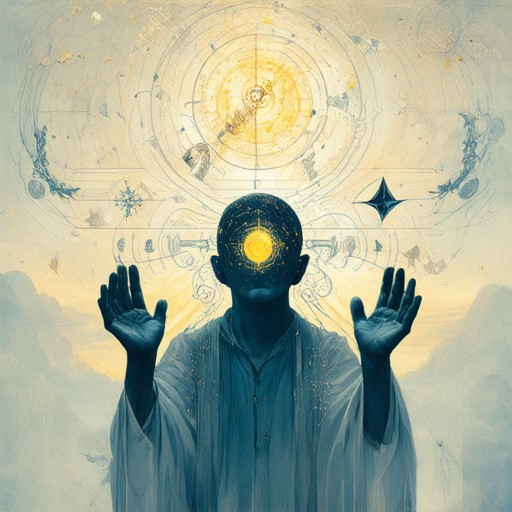
How Reflections Contribute to Personal Growth and Creativity Breakthroughs
Reflections are a powerful tool for fostering personal growth and driving creativity breakthroughs. Here’s how they contribute:
- Self-Awareness : Reflection allows individuals to examine their thoughts, feelings, and actions, providing insight into their strengths and weaknesses. This awareness is essential for personal growth, as it enables individuals to identify areas for improvement and celebrate their achievements.
- Clarity of Purpose : Reflecting on one’s values and goals can lead to a clearer understanding of their purpose. This clarity motivates individuals to pursue meaningful objectives, which in turn enhances creativity by aligning efforts with deeper motivations.
- Pattern Recognition : By reflecting on past experiences and projects, individuals can identify patterns, recognize mistakes, and observe evolution over time. This awareness fosters innovation by offering new perspectives and ideas.
- Mindfulness and Focus : Reflection encourages mindfulness, helping individuals stay present and engaged with their work. This focus reduces stress and distractions, enabling clearer thinking and more creative problem-solving.
- Inspiration and Learning : Reflecting on successes and learning from others’ journeys can inspire new ideas and approaches. This exposure to diverse experiences enriches one’s creative palette and opens doors to breakthroughs.
- Emotional Balance : Constructive reflection can enhance positive emotions, boosting creativity. Conversely, addressing negative emotions constructively prevents them from hindering progress.
- Tool Utilization : Tools like journals or digital notes facilitate organized reflection, aiding in capturing and analyzing thoughts for future insights.
In essence, reflections are integral to personal growth and creativity, offering a transformative journey marked by self-discovery, clarity, and inspiration.

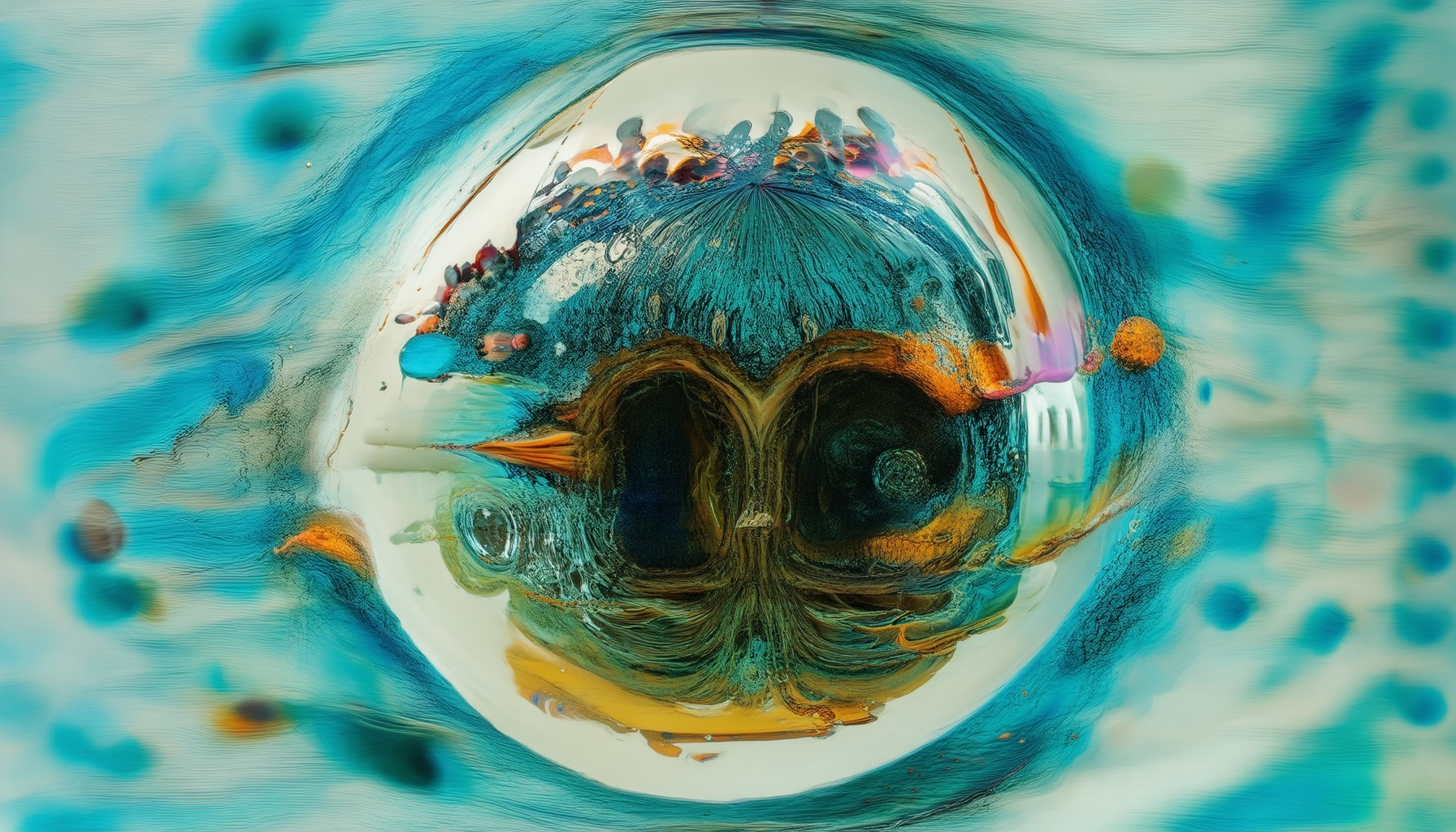
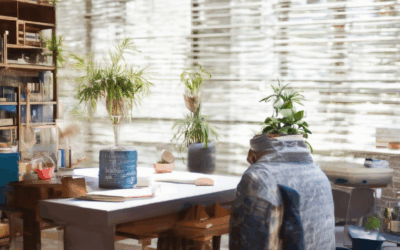
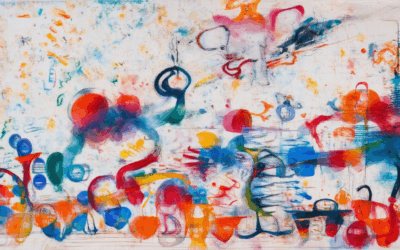
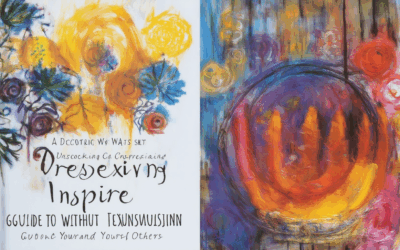
0 Comments